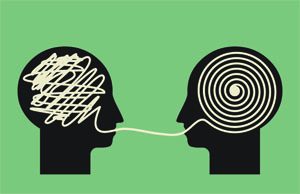Is Your Company Irritating Customers?
February 13, 2009Benefits of the Customer Review Process: Feedback from a Client-focused Organization
March 6, 2009What Data Should You Ignore?
I recently saw a great video from the author and thought leader Malcolm Gladwell. Basically, his point is that when it comes to data, less is more. The story he tells is that when emergency room physicians were given less information about critical patients – only the most important data – they were more effective in their diagnosis.
What does that mean for your company, and especially the voice of your customers? Are you capturing the right information? Are you gathering customer data that simply isn’t critical?
First, it’s vital to think about which customers you’re listening to.
One important concept I’ve shared with our clients is that you need to start by thinking about feedback from three groups:
The high revenue: These are the clients you need to listen to because you depend on them for a large chunk of your revenue. You can’t afford to lose them, so you need to hear their concerns and build strong relationships. It’s common for businesses to have 80% of their sales come from 20% of their customers, so it’s vitally important for you to talk to that top 20%.
The high potentials: Some of your customers have needs that you could be serving, but for a myriad of reasons, you aren’t. Not yet. Reaching out to this group and finding other offerings you could be selling to them just makes sense. Listen to their needs, and chances are you’ll find ways to take the relationship to the next revenue level.
The at-risk: Business is like life: stuff happens. Some of your customers aren’t happy with you, but in most cases that creates two opportunities: It lets them vent (and realize you are making an effort to listen) and it gives you the data you need to start problem solving.
Figuring out whom to listen to, what questions to ask, and what to do with the answers are all critical steps in leveraging your most important relationships. But don’t get stuck in the quagmire of unactionable results from contacts that don’t actually contribute to your success.
Could you make better business decisions and take Gladwell’s advice to restore judgment by taking away information?
Nick Wassenberg, Research Analyst
E.G. Insight


